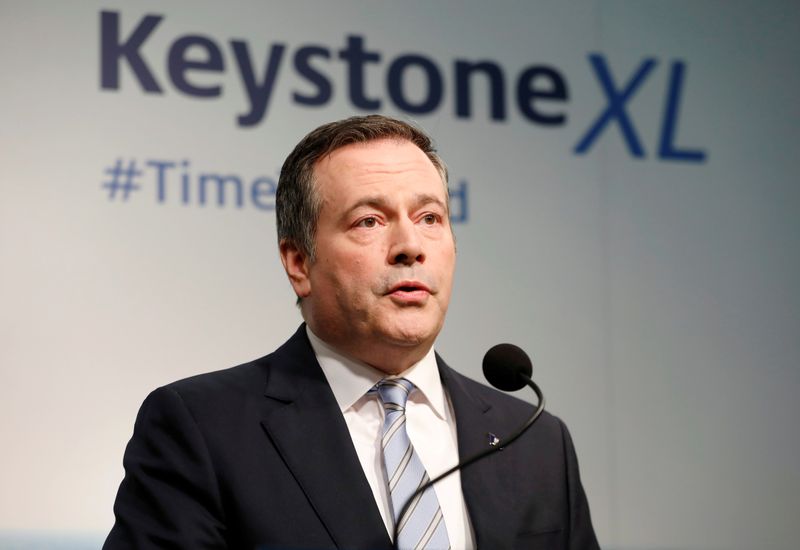By Jeff Lewis
TORONTO (Reuters) - The Canadian province of Alberta, home to the world’s third-largest oil reserves, said on Monday it will accelerate a corporate tax cut and invest C$10 billion ($7.31 billion) in infrastructure projects to jump start an economy badly damaged by the coronavirus pandemic.
Premier Jason Kenney, who said the tax cut would take effect July 1, described the program as the largest infrastructure investment in Alberta's history. The corporate tax rate will fall to 8% from the current 10%, two years sooner than scheduled.
Economic shutdowns due the virus outbreak added to challenges in the oil-rich province from lower crude prices (CLc1) and pipeline congestion, pushing the unemployment rate as high as 25%, Kenney said.
"Given the severity of the economic crisis, we must act now," he said during a press conference.
Canada is over the worst of the coronavirus outbreak but a spike in cases in the United States and elsewhere shows Canadians must remain vigilant as the economy reopens, Prime Minister Justin Trudeau said on Monday.
Alberta's recovery program will create an estimated 55,000 new full-time private sector jobs, and stimulate C$13 billion in economic growth, the province said.
The province will also invest an additional C$175 million to expand access to venture capital for early stage start-up companies while seeking to limit the use of temporary foreign workers to boost local employment, according to the plan.
Alberta Finance Minister Travis Toews said the financial supports could jeopardize the province's credit rating. Fitch cut Canada's rating last week.
Toews said the tax cut will cost an estimated C$200 million to C$300 million in the current fiscal year and between C$100 million and C$200 million next year.
Before the pandemic, Alberta's deficit was forecast at C$6.8 billion for the 2020-21 fiscal year.
